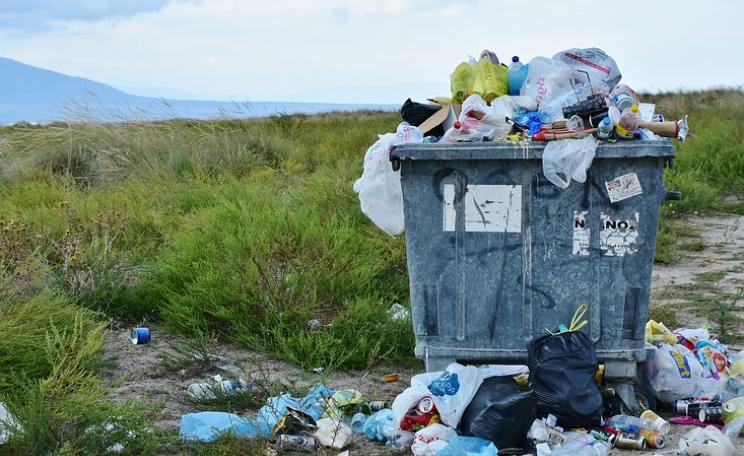The idea of a 'global levy based on fuel consumption' is one to warm the hearts of environmental campaigners as it would operate like a carbon tax, giving a clear economic signal to shippers to cut their emissions.
At the UNFCCC Climate Conference (COP 22), in Marrakesh, the International Chamber of Shipping (ICS) today committed the industry to fulfilling ambitious emissions reductions under the Paria Agreement, which came into force last week.
It also welcomed the International Maritime Organization (IMO) agreement on a 'CO2 Road Map' for shipping as "a significant decision giving further impetus to the substantial CO2 reductions that are already being delivered by the global industry."
At an official UNFCCC side event organised by IMO today, ICS Director of Policy and External Relations, Simon Bennett, said: "We are very optimistic that initial CO2 reduction objectives can now be developed by IMO for the sector by 2018.
"The shipping industry thinks these should reflect the spirit and ambition of the Paris Agreement while being appropriate to the circumstances that apply to international shipping - just as the commitments made by governments to UNFCCC reflect the circumstances of different national economies."
ICS, whose members operate over 80% of the world's merchant tonnage, says that the IMO Road Map - agreed by the IMO Marine Environment Protection Committee on 28th October - will build on the mandatory CO2 reduction regulations for shipping already adopted by IMO four years before the Paris Agreement was adopted. This will ensure that ships built after 2025 will be at least 30% more efficient.
Based on 2012 figures, shipping accounts for 2.2% of global greenhouse gas emissions.
'We will go beyond Paris obligations'
However, ICS believes the IMO Road Map will actually will go much further than the Paris Agreement, said Mr Bennett, in that unlike the 'INDC' commitments made by countries, the IMO scheme would be legally binding: "The final stage to be enacted by 2023 should establish a global mechanism for ensuring that these initial IMO commitments - which the industry wants to see agreed by 2018 - will actually be delivered."
ICS says this IMO delivery mechanism could include a legally binding 'market based measure'. "This remains very controversial and is not yet universally supported throughout the shipping industry", said Mr Bennett. "But if this is what governments eventually decide, the clear preference of the majority of the industry would be for a global levy based on fuel consumption."
The idea of a 'global levy based on fuel consumption' is one to warm the hearts of environmental campaigners as it would operate like a carbon tax on fuel, giving a clear and unambiguous economic signal to shippers to cut their emissions. Mr Bennett confirmed that there would be "some differentiation for people using low carbon fuels like LNG."
The idea of a 'global levy based on fuel consumption' is one to warm the hearts of environmental campaigners as it would operate like a carbon tax, giving a clear economic signal to shippers to cut their emissions.
It also stands in stark contrast to the aviation industry, which is rallying around proposals by ICAO, the UN agency responsible for aviation, to utilise an 'offset' based model which permits the industry's emissions to increase, so long as companies buy carbon credits.
ICAO's Global Market-Based Measure is planned to start in 2021, although details of the Carbon Offsetting and Reduction Scheme for International Aviation (CORSIA) have yet to be agreed. "CORSIA is not a cap and trade scheme - it's even worse", says Chris Lang of REDD Monitor. "It's carbon trade without a cap. Emissions from flying under this scheme will continue to increase dramatically."
While it is not yet clear if the shipping industry will operate under a cap, it has promised to deliver a 50% increase in fuel efficiency per tonne-kilometre of cargo by 2050, based on a 2005 baseline.
Low sulphur fuels will drive further emissions cuts from 2020
ICS says that the international shipping sector actually reduced its total CO2 emissions by more than 10% between 2007 and 2012, despite an increase in maritime trade - while the rest of the world economy, even taking account of the commitments made in Paris - will probably continue increasing emissions at least until the 2030s. This was achieved mainly by reducing the average speed of ships from around 22 knots to 18 knots.
Further fuel economy will be encouraged by a 50% to 100% increase in fuel costs in 2020 as cheap, high sulphur fuels will be banned under recently agreed IMO regulations. These will see the maximum sulphur fraction in fuel cut from 3.5% to 0.5%, a boon to the health of coastal communities and the wider environment.
ICS and its member national shipowners' associations expect to come forward with some firm ideas about what these IMO CO2 reduction commitments might entail before the next IMO Marine Environment Protection Committee meeting in 2017.
"Key to next steps is the mandatory global CO2 data collection system which IMO has now adopted", Mr Bennett added. "This will enable any initial CO2 commitments agreed in 2018 to be further refined using the very latest data on ships' emissions which will become fully available from 2019.
"But most importantly, the IMO data system will inform the development of a mechanism by IMO for ensuring that agreed CO2 reduction commitments are indeed fully met. This will no doubt include deciding the extent to which technical and operational measures alone might be insufficient to deliver the IMO CO2 reduction commitments that we hope will be initially agreed in 2018."
Mr Bennett concluded: "The shipping industry fully recognises that society expects more, and we therefore think it is vital that IMO Member States agree some truly ambitious CO2 reduction commitments by 2018."
Oliver Tickell is contributing editor at The Ecologist.







